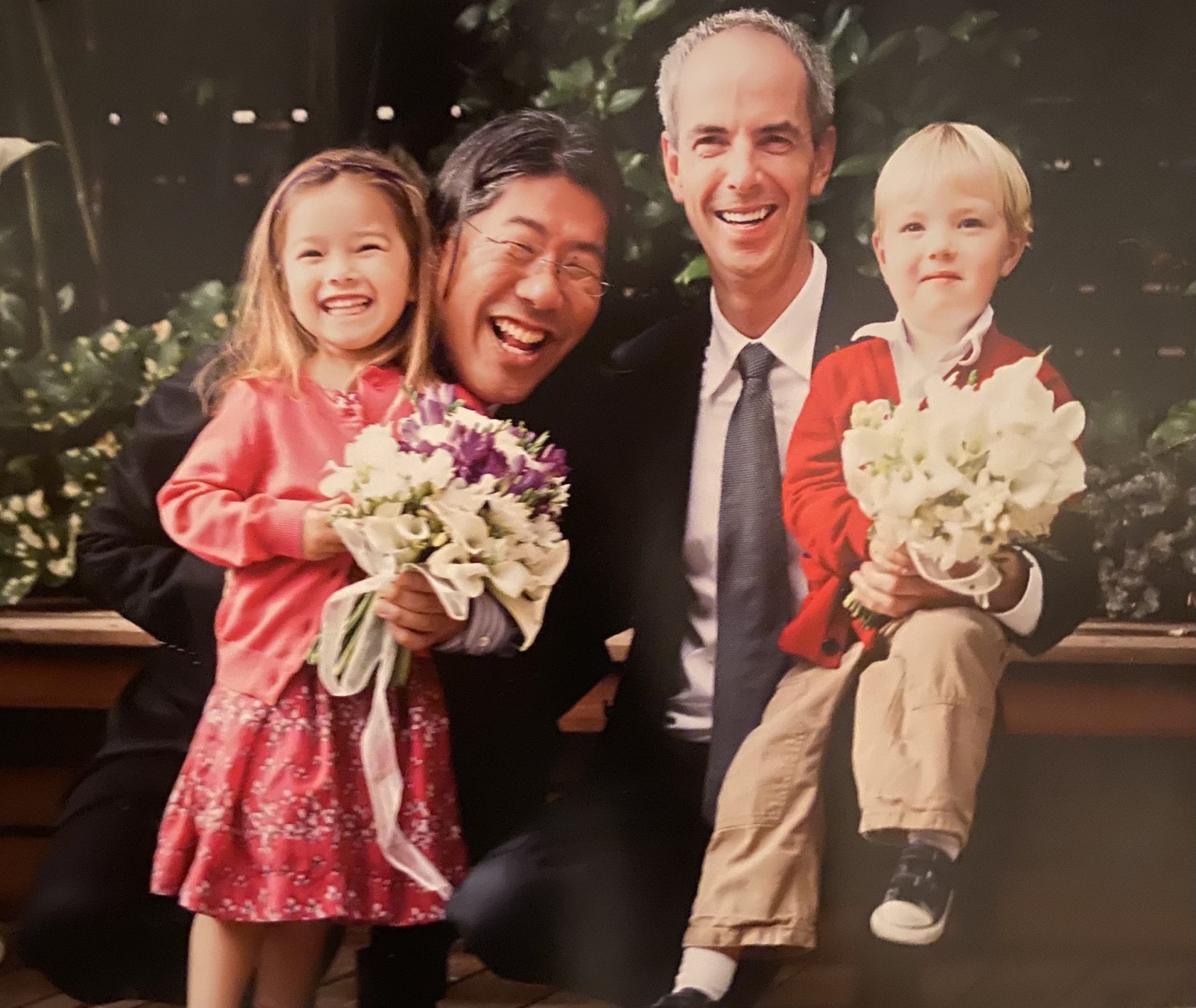 “So, which is the mom and which is the dad?” my friend’s dad inquires, peering eagerly at my brother and me like we were a rare specimen under a microscope rather than two elementary schoolers poking at meatloaf.
“So, which is the mom and which is the dad?” my friend’s dad inquires, peering eagerly at my brother and me like we were a rare specimen under a microscope rather than two elementary schoolers poking at meatloaf.
My brother and I look at each other and then back at the expecting eyes across the dinner table. I knew that, as his big sister, it was my responsibility to undertake this question even if I had no idea how to address it.
“Uh I don’t know, they’re both my dads,” I answer, but I could tell my response was unsatisfactory.
At the core of his question, I understood he was trying to understand our family in the context of his own family and the familial roles he’d grown up with. Even in major cities, no matter where we lived we had always been the only family with same-sex parents, so I had always understood that we did not match the structure of my peer’s heterosexual families. Yet, I had always viewed our families as being in completely separate categories from one another. I had never tried to define my family by the traditional structure the way he wanted me to and didn’t feel that I could.

To me, it felt akin to asking me which chopstick is the spoon and which is the fork. At eight years old, I had no idea how to articulate the difference between our families the way I understood it. At the fear of being impolite, I analyzed the other families that I knew and what their moms and dads were like, attempting to understand how we fit into his terms. All I could conclude was that most of my friends’ moms worked from home and were stay-at-home parents like Papa, while their dads usually worked in an office and traveled frequently like Dad.
“I guess my Papa is the mom?” I reluctantly add. My brother nods silently next to me, affirming this conclusion.
While this was the first time I got this question, it was certainly not the last. As I grew up, the natural contrast my family’s structure provided against the typical gender and family roles pushed me to continue to question the nature, origin, and validity of these roles. In this exploration, I began to understand how, even in my “untraditional” family, gender roles were still at play, albeit in much subtler ways. Even though we are only 16 months apart, I have always had more responsibility at home, including the expectations that I undertake the role of a third parent to my brother and clean up after everyone.

Aside from how gender roles impacted my home life, it slowly became apparent how they bled into the classroom. Throughout my schooling, I became hyper-aware of my gender and how it contributed to how people perceived me. I often felt underestimated when it came to technological or mathematic projects and was frequently met with surprise from my male peers and teachers when I was able to accomplish them successfully.
In discussions, it was common – even considered the norm – that girls were interrupted or their points overlooked. It was during one of such discussions in my humanities class that I spoke up several times only to be continuously interrupted by different boys. In math class later that day, I shared my idea for our group problem set in my all-male group only to be shut down and then have one of the boys in my group regurgitate my exact words and be praised for his suggestion. The casualness of this blatant and continued disrespect over the course of the day drew this issue to my attention beyond the usual annoyance I felt in class. I wasn’t angry at the boys who interrupted me, I was angry at myself: how could I call myself a feminist when I couldn’t even speak up for myself in class?
Later that night when we were discussing police reform, my dad continuously interrupted me, too. It was then that I understood how my complacent nature had come to be. I had been conditioned to accept this treatment, to believe that my voice came second to every male voice in the room. Every time men at home talked over me or invalidated my arguments because of my gender, it mirrored each time a boy at school did. But I quickly realized that this conditioning wasn’t only impacting me, it was also impacting the way my brother views women and his role in society.

As much as I tacitly recite feminist theory to him or push him to watch female-led movies with me, nothing will impact the way he views and treats women more than how he sees the men around him treat women – especially the men he respects. It was then that I decided to start addressing this issue within my own family first, and through that decision, I was able to begin taking a stand for myself in the classroom, too.
